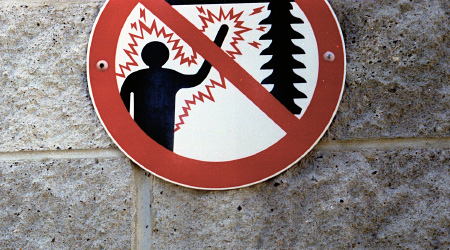Lower Your Electric Bill

Electricity is an essential part of everyday life and is used in everything from the battery in a car to an electric stove to watching a movie on TV. As more and more electric devices come to market consumers wind up paying even higher electric bills. Air-conditioning in the summer and electric space heaters in the winter exacerbate already sky high prices and can lead some consumers to cut out necessities or become delinquent on utility bills. With some minor changes you can lower your electric bill and start saving money immediately. The following are some tips which can help cut electrical costs and put more money in your pocket.
Tip #1
Heating and cooling can result in some of the heaviest electric usage. Replacing filters regularly, installing a digital thermostat, weather sealing doors and windows and turning down the hot water heater can all have an immediate cost savings.
Tip #2
In the summer let mother nature cool your home instead of the air conditioner. Open more windows to increase airflow and install ceiling fans to normalize air temperature. Using the oven less and closing drapes and blinds to block direct sunlight and heat will also lower ambient temperatures.
Tip #3
Light fixtures often use more electricity than is commonly believed. Turning off lights when not in the room and leaving exterior lights off completely is a good start. Replacing regular light bulbs with CFL's or LEDs can also significantly cut wattage requirements. Cleaning lights also prevent them from burning out as frequently and can provide more indirect lighting resulting in fewer lights used.
Tip #4
The laundry room and dishwasher are other wasters of electricity. Using cold water to wash clothes will mean less hot water usage and electricity. Using a clothes line to air dry laundry is a free and simple way to reduce electricity usage. Running the dishwasher and clothes washer only when they are full will result in less usage over time. Letting dishes air dry can cut a washing cycle in half eliminating the need for additional electricity or producing extra heat which will need to be cooled later.
Tip #5
Refrigerators are sophisticated devices but there are still efficient ways to use them effectively. An empty freezer and refrigerator use more electricity to stay cool so keep them full. Let hot foods and leftovers cool prior to placing them in a refrigerator. Minimize opening the doors as much is possible to prevent cool air from escaping. Verify that the seals and gaskets surrounding the doors are not allowing air leakage.
The above are simple behavioral or procedural modifications that result in smart energy usage and eliminating areas of waste. Other ideas include switching to government approved energy star appliances and electronics or, if a long-term view is taken and investment made, installing radiant floor heating or solar panels. These are more expensive and time-consuming suggestions but they increase the resale value of the home. With respect to solar panels, you can actually receive a monthly payment from the local utility if you sell enough electricity back into the system. At a bare minimum however making the above changes can save hundreds of dollars a year and lower your electric bill without significantly impacting your quality of life.
Elsewhere on StockMonkeys.com







